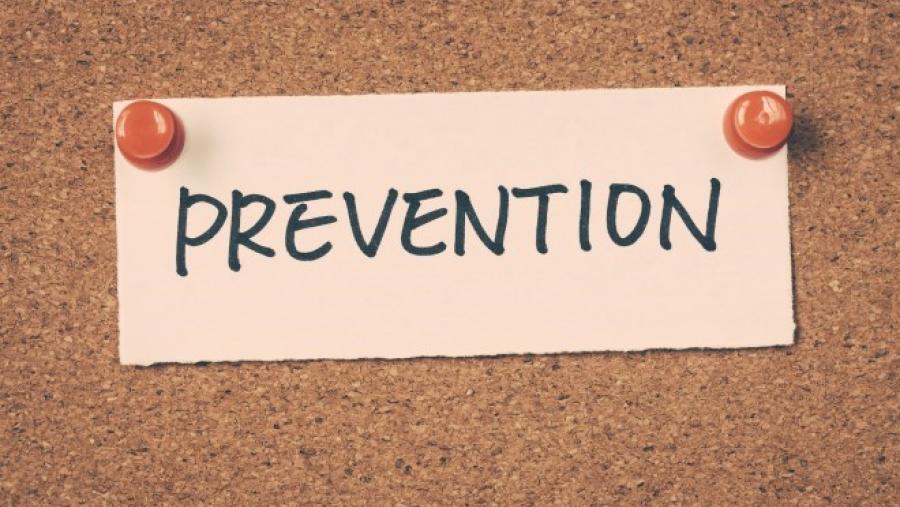Preventing Opioid Use Disorder
Overview
The Research Need
Effective prevention strategies can reduce the likelihood that individuals who may experience risk for substance use begin misusing opioids or develop opioid use disorder. There is a need for prevention interventions that can be delivered in systems and settings that reach populations most affected by the opioid crisis, as well as a need for interventions that address social determinants of health. Challenges implementing, scaling up, and sustaining prevention interventions make it difficult for organizations and public systems to provide access to prevention services for all who might benefit.
About the Program
This program strives to generate science that will, ultimately, enable health care organizations and public systems to make evidence-based, community-informed, sustainable preventive intervention services available and accessible to all people at risk for opioid and other substance misuse or use disorders.
The research supported through this program addresses four strategic areas: identifying risk; studying the role of social determinants and policy, particularly their impacts on health equity; developing effective interventions; and supporting research toward disseminating and implementing sustainable, scalable prevention services.
This research focuses on underserved populations that experience health disparities. Funded projects are testing interventions in settings such as the justice system, homeless shelters, the child welfare system, emergency departments, and community health centers. The program also addresses social determinants of health, examining the impact of structural, systemic, and policy interventions on opioid misuse by targeting inequities, social risk, and/or social disadvantage.
Open Funding Opportunities
There are no Open Funding Opportunities at this time.Events
- HEAL Prevention Webinar Series (Ongoing)
- HEAL Prevention Podcast Series (Ongoing)
- HEAL Prevention Cooperative Webinar Series: The Dollars and Sense of Costing a Substance Use Prevention Program: Learnings from a Research Cooperative | April 19, 2024
- HEAL Prevention Initiative (HPI) Year 4 | December 6 – 7, 2022
- HEAL Prevention Initiative (HPI) Year 3 | November 10, 2021
Research Examples
Research examples supported by this program include:
- Developing and testing interventions to prevent opioid misuse and opioid use disorder among young people age 15 to 30 in various settings and with a range of populations
- Building an evidence base for interventions that target malleable factors and conditions affecting social determinants of health
- Designing multi-level interventions that modify social context, delineating the mechanisms through which interventions can improve social conditions and decrease opioid misuse risk
- Testing economic costs and outcomes of interventions focused on social determinants
- Identifying risk and protective factors and trajectories or pathways to opioid misuse and opioid use disorder, including examining associations between tobacco, cannabis, and opioid use
- Adapting and assessing effects of existing substance use prevention interventions on opioid use outcomes among young people
- Examining how social networks affect opioid use disorder, related risks, and intervention outcomes, focusing on disparate populations within American Indian/Alaska Native communities
Research Institution Awards
- Boston Medical Center – Massachusetts
- Brown University – Rhode Island
- Emory University – Georgia
- Indian Health Council, Inc. – California
- Johns Hopkins University – Maryland
- Kaiser Foundation Research Institute – California
- Massachusetts General Hospital – Massachusetts
- New York University School of Medicine – New York
- Ohio State University – Ohio
- Oregon Health and Science University – Oregon
- Oregon Social Learning Center – Oregon
- RAND Corporation – California
- Seattle Children’s Hospital – Washington
- Texas Christian University – Texas
- University of Colorado, Denver – Colorado
- University of Maryland, College Park – Maryland
- University of Michigan – Michigan
- University of Oregon – Oregon
- University of Pittsburgh – Pennsylvania
- University of Washington – Washington
- University of Utah – Utah
- Washington University – Missouri
- West Virginia University – West Virginia
- Yale University – Connecticut
Coordinating Center Award
- RTI Institute – North Carolina
Participating NIH Institutes, Centers, and Offices
Contact
Resources
View Other Research Programs in This Focus Area
- Collaborative Care for Polysubstance use in Primary Care Settings (Co-Care)
- Optimizing Care for People with Opioid Use Disorder and Mental Health Conditions
- Optimizing the Duration, Retention, and Discontinuation of Medication Treatment for Opioid Use Disorder
- Prevention of Progression to Moderate or Severe Opioid Use Disorder (STOP)
- Sleep Dysfunction as a Core Feature of Opioid Use Disorder and Recovery
Stay Connected
Stay up to date on the latest HEAL Initiative research advances by subscribing to receive HEAL content directly to your inbox.
 U.S. Department of Health & Human Services
U.S. Department of Health & Human Services







